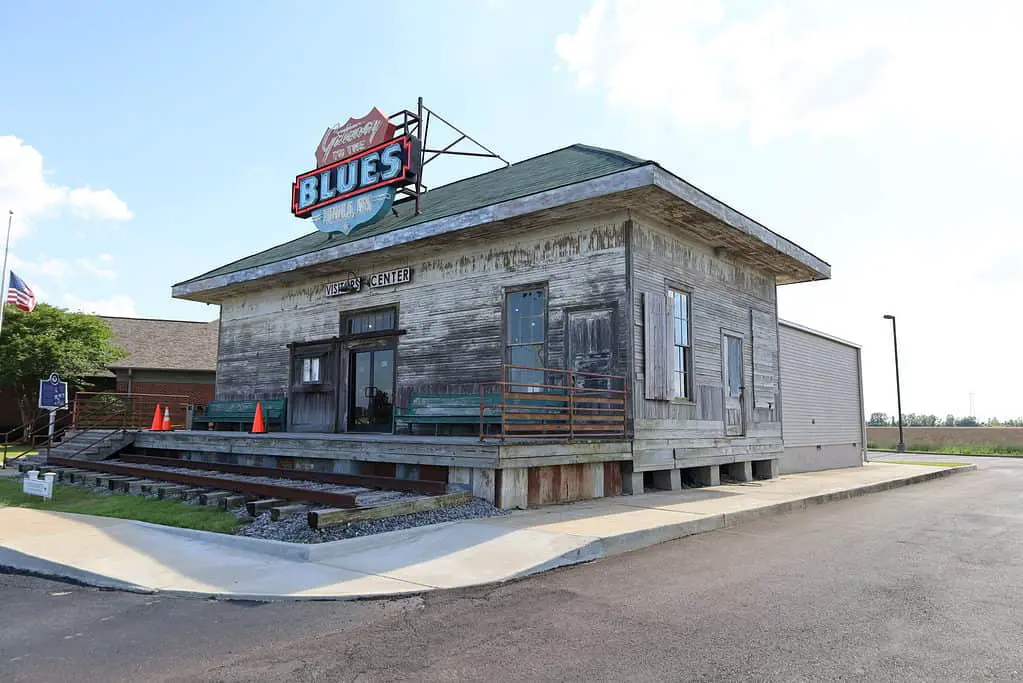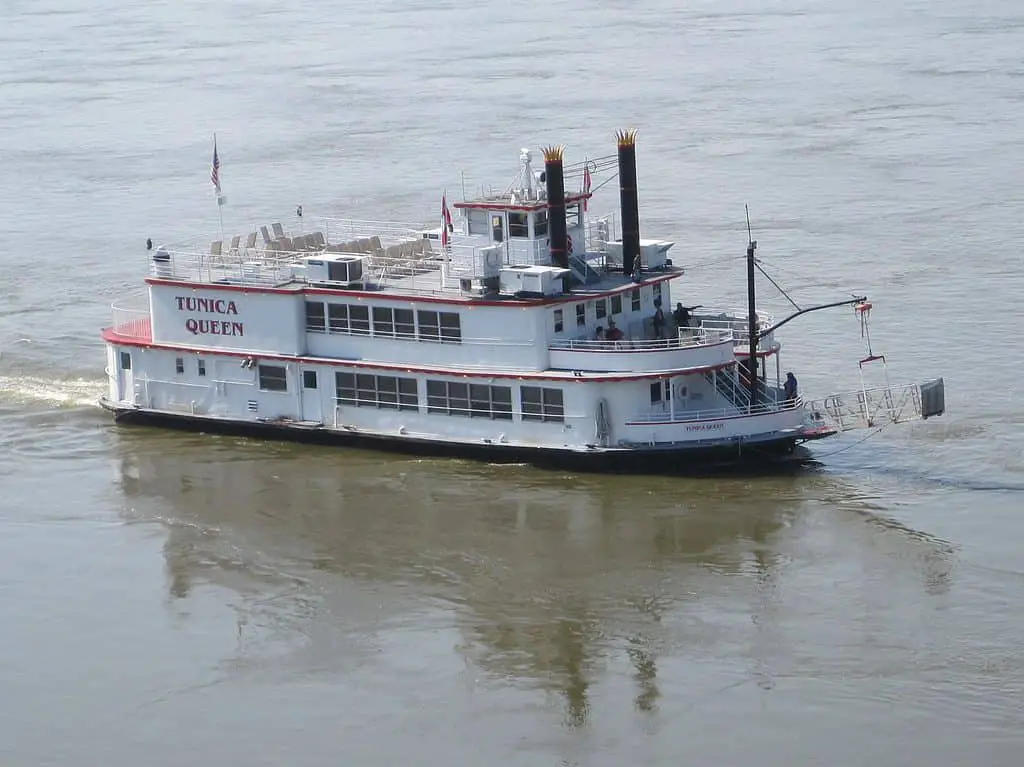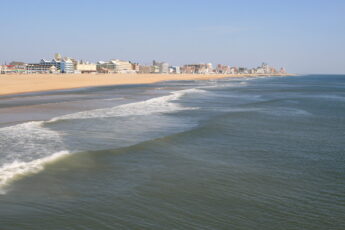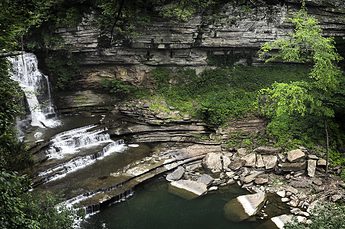Why Stay in Tunica? Things to Do in Tunica, Mississippi
On the edge of the Mississippi Delta, Tunica holds more than you might expect. Things to do in Tunica, Mississippi, extend beyond the casinos people often mention.
Step into a town where the river bends close and the history runs deep. Blues music lingers here, but so do fishing boats, quiet trails, and stories from centuries back.
Take a closer look. Surprises tend to turn up in places like this.
Ways to Fill Free Time in Tunica
A day in Tunica starts with options. The Mississippi River flows along the county’s edge, shaping the land and the past.
Tunica RiverPark, on Casino Center Drive, stretches across 130 acres and first opened to the public in 2003.
Visitors can walk riverfront trails, look out over water from an elevated deck, or step inside a museum built to tell the river’s story.
More choices appear at Arkabutla Lake, known for crappie fishing, swimming, and sailing.
This reservoir sits about 25 miles from downtown and has drawn anglers and boaters since its construction in the 1940s.
Some travelers head for exhibits at the Tunica Museum, which covers local history from pre-Columbian times up to the present day.
Blues fans stop at the Gateway to the Blues Museum, set inside a former railroad depot on Highway 61.
Outdoor spots, small museums, and music landmarks each carve out their own corner here.
Each site brings its own purpose, its own way to pass the time, and its own slice of Tunica.

Tunica RiverPark & Museum
Built on a curve of the Mississippi River and opened in 2003, Tunica RiverPark covers 130 acres along Casino Center Drive.
The museum inside holds permanent displays on river engineering, Delta wildlife, and flood history.
Visitors walk through aquariums filled with native fish, then move past soil samples and navigation tools from the U.S. Army Corps of Engineers.
Outside, the boardwalk runs along the water’s edge, while an elevated observation deck gives a full view of the floodplain.
Riverboat cruises, when operating, leave from a dock nearby.
For those asking what to do in Tunica, Mississippi, this park clearly lays out one answer.
Arkabutla Lake
Spanning parts of DeSoto and Tate counties, Arkabutla Lake was created in 1943 when the U.S. Army Corps of Engineers completed the Arkabutla Dam as part of a larger flood control system.
It sits roughly 25 miles southeast of Tunica and stretches over 11,500 acres of surface water.
Anglers target black and white crappie near the dam and creeks that feed the reservoir.
The lake also supports boating, swimming, and birdwatching.
In February 2023, the lake’s level was temporarily lowered to allow engineers to examine erosion issues near the dam structure.
Facilities stayed open, but boating was limited during that period.

Tunica Museum
The Tunica Museum opened in 1997 along U.S. Highway 61, just south of downtown.
Inside, exhibits follow the region’s story from pre-Columbian settlement through cotton farming, railroad development, and casino legislation in the 1990s.
One section features tools and pottery from mound-building cultures.
Another detail of soil conservation programs was introduced after the Dust Bowl era.
There’s also a small wildlife exhibit with taxidermy native to the Delta.
The museum operates without admission fees and offers self-guided tours.
For travelers looking at quieter places to visit in Tunica, the museum offers time and space to sit with the county’s layered history.

Tunica Lake
Located just west of the town limits, Tunica Lake formed in the 1940s after the U.S. Army Corps of Engineers straightened part of the Mississippi River.
The lake’s 15-mile length follows the original meander, now separated by levees.
Depths vary depending on rainfall, but shallow areas support a range of fish, crappie, channel catfish, and largemouth bass among them.
Public boat ramps on the Mississippi side make access easy, while Arkansas cabins line the opposite bank.
A small channel connects the south end to the main river, creating seasonal fish migration routes.
The lake draws steady traffic on weekends, especially from March through July.
Gateway to the Blues Museum
The Gateway to the Blues Museum occupies a restored 1895 depot along Highway 61.
Opened to the public in 2015, it’s both a visitor center and part of the Mississippi Blues Trail.
The main exhibit walks through early blues origins, field songs, church music, and jukes, using listening stations and original instruments.
One gallery replicates a studio booth where guests can record their own short track.
The walls include sheet music, press clippings, and trail markers that explain how the genre left the Delta and circled back again.
Visitors interested in what to see in Tunica tend to stop here early in the trip.

Meander Gardens at Tunica RiverPark
Between the parking lot and the river’s edge, Meander Gardens moves in curves, low stone edging, native grasses, and spots of color that shift with the season.
The layout feels informal, more like something grown than built.
Spring shows up in iris beds near the eastern trail, while fall turns the birches along the fence gold.
River wind cuts through even on warmer days. Visitors come for the quiet more than the blooms, and benches set deep into shade often stay occupied.
As a break from busier attractions in Tunica, the gardens carry their own slow rhythm.

Fishing Opportunities in Tunica
Anglers who know the area talk about Tunica Lake first, shallow, moody, and generous on the right day.
Crappie dominate the spring reports, but bass and cats stay active well into summer.
The Arkansas-Mississippi license agreement keeps the rules simple, which draws weekend trucks from both sides of the line.
Arkabutla Lake sees heavier boat traffic, especially during crappie runs near the dam.
Bank fishing holds its own, mostly at dawn or just after storms.
What to do in Tunica, Mississippi, can shift with the weather, but fishing holds steady for those who time it right.
Camping and Picnicking at Arkabutla Lake
Roughly 25 miles southeast of Tunica, the lake’s campgrounds sit tucked among pine and hardwood stands.
Dub Patton Campground leans toward quiet, with spaced-out lots and easy access to wooded trails.
Hernando Point has the better lake views, several sites face open water where kids swim and boats idle near shore.
Fire pits, old grills, and tables under cover mark the picnic setups, some dating back decades.
By Friday night in early summer, most sites fill with coolers, folding chairs, and a hum of insects.
For families planning where to go in Tunica for a slow weekend, this stretch stays popular.
Scenic Drives and Photography
U.S. 61, running north-south through Tunica County, carries more than traffic.
It cuts through farmland that changes color by the month, brown in February, light green in April, full cotton by August.
Pull-offs near Fox Island or Mhoon Landing give views across the floodplain and farmland.
The light plays a role too: flat and sharp by noon, then longer and angled by late afternoon.
The RiverPark’s upper deck gives photographers a wider shot, but some of the strongest frames come roadside, a weathered barn, an empty field, a line of trees leaning with the wind.
Educational Programs and Events
The Tunica Museum rotates its exhibits slowly, but the material stays rooted, soil maps, early farming records, and river survey notes from 1927.
Public talks show up seasonally, tied to crop cycles or school calendars.
The Gateway to the Blues Museum adds informal music sessions that walk visitors through rhythm changes and field-call phrasing.
Tunica RiverPark leans more into ecology: water flow demos, bird migration updates, and levee-building history.
Most events are listed quietly, with flyers in town buildings or announcements through local outlets.
For people asking what to see in Tunica with a few hours to spare, these programs hold up.
🍀








